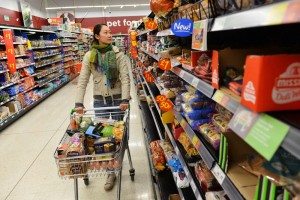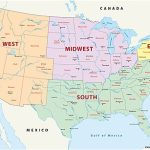
British households were on average £160 worse off in July than a year earlier, according to research by the supermarket Asda, as it said it would do more to help shoppers being squeezed by soaring food and energy costs.
Asda bosses said they would keep “grocery bills in check” and do all they could to support customers “during these tough times”, as they monitor how much money consumers have to spend through their income tracker.
It came as the supermarket’s results showed that its sales fell at a slower rate between April and June than during the previous three-month period.
However, its sales slipped by 1.9% in the April to June quarter, compared with a year earlier.
This followed a 9.2% slump in like-for-like sales excluding fuel between January and March, as shoppers tightened their belts.
Asda, which was bought last year by the petrol station billionaires Mohsin and Zuber Issa and TDR Capital, said it had benefitted from strong sales of its new “just essentials” range, aimed at shoppers facing pressure on their household finances.
The range, which launched in May, now includes 220 products including fruit, vegetables, fresh meat and fish.
It said the range had proved “very popular with value-conscious customers”, with one in three shoppers regularly buying ‘just essentials’ products.
In February, Asda committed to making its cheapest food ranges more widely available for shoppers, after the anti-poverty campaigner Jack Monroe raised concerns that customers on low incomes were struggling to get hold of some products, forcing them to spend more.
Asda said it had also expanded its “dropped & locked” campaign, where it has committed to freezing the price of 250 products for the rest of the year.
“Every week millions of customers visit our stores or shop with us online and we know many of them are struggling with rising living costs that show no sign of easing,” said Mohsin Issa, Asda’s co-owner.
“We are determined to do all we can to support these customers during these tough times by keeping their grocery bills in check while delivering added value through initiatives such as ‘dropped & locked’ and the ‘kids eat for £1’ offer in Asda cafes.”
Asda said more than 330,000 children’s meals had been served in its cafes since the offer started in late June.
The retailer launched a new loyalty app for customers shopping in stores and online earlier in August, which gives them money off their shop at checkout. It said over 2 million customers had downloaded the app and together had collected £7m in their cash pots, which they are able to spend at Asda.
The under-30s are among the hardest hit by sharp increases in the price of essentials including rent, groceries, transport costs and utility bills, Asda’s research found, resulting in an almost 22% slide in disposable income for this group in July compared with a year earlier.
According to Asda’s income tracker, young people under 30 were left with a disposable income of just £150 per week after paying their taxes and essential bills, at a time of soaring inflation and cost of living crisis.
Read more:
British households £160 worse off in July than a year ago, says Asda






